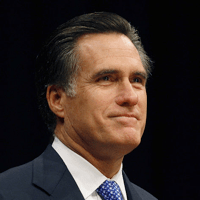In her WPR column yesterday, Frida Ghitis noted that the global chessboard is being "reset" as countries re-examine longstanding partnerships and alliances, both formal and informal, in the face of broad geopolitical changes taking place today. "As a result," wrote Ghitis, "the coming months and years will bring about a recasting of important strategic links, some of which have been part of the global landscape for decades."
The evidence of this transformation can be found across the Middle East and South Asia, as a result of the Arab uprisings, but also due to the Afghanistan War, which has strained U.S. relations with Pakistan, and the growing strategic rivalry between Turkey and Israel, which has put pressure on Washington's ties with Ankara.
Meanwhile, Washington's focus on current crisis management has prevented the slow, steady work needed to cultivate ties with rising global powers like India and Brazil, which still remain cautious about cementing any sort of formal partnership with the U.S. And though the free trade agreements with South Korea, Panama and Colombia that finally passed the U.S. Congress could ultimately lead to further trans-Pacific partnership, they do not portend any renewed effort to promote greater integration in the Western Hemisphere.

